But inside traditional tailoring shops, things are changing. In the conservative parts of Pakistan, men and women don’t exactly mix, their two worlds separated by centuries of strict social norms.
In the midst of the country’s busy wedding season in April, Pakistani photo-journalist Saba Rehman spent some time inside Needles Tailoring, Mardan, in the Khyber-Pakhtunkhwa Province bordering Afghanistan. There she found expert tailors, who once clothed only men, now serving a growing female clientele.
When it comes to wedding finery or attire for special occasions like Eid al-Fitr, both men and women splurge. Though sex segregation remains the norm in Mardan, inside Needles Tailoring, female customers interact with the male tailors, negotiating prices and discussing designs. These tailors now work up to 12 hours a day to meet the rising demand.
In the following photos, Rehman captures the tools of the trade, and the tailors hard at work.

A woman visits Needles Tailoring shop in Mardan, Pakistan. Easing traditions mean tailors who once made men’s clothes exclusively are now overwhelmed with orders for wedding dresses.
Segregation of the sexes is strictly enforced in Mardan, in Pakistan’s conservative Khyber Pukhtunkhwah province bordering Afghanistan, and much of Pakistan’s northwest, but traditions are slowly giving way to demand. (AP Photo/Saba Rehman)

A senior tailor talks with customers about upcoming designs and increase of fees at Needles Tailoring. Today women, even in conservative regions of the country, are more visible, boosting orders for tailors who were once effectively banned from the much bigger business of sewing clothes for fashion-conscious women. (AP Photo/Saba Rehman)
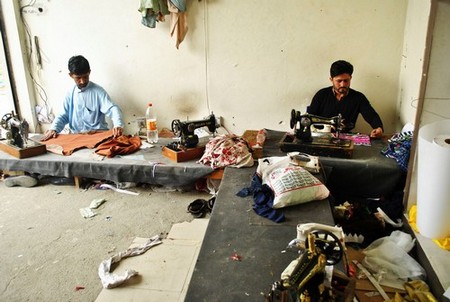
A junior tailor, left, stretches fabric. April was a hectic month as most would-be brides and grooms planned their wedding ahead of Ramadan, the Islamic holy month when the devout fast from sunrise to sunset. (AP Photo/Saba Rehman)
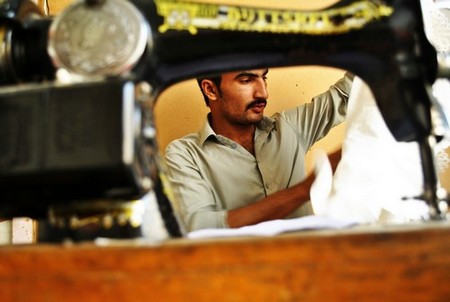
A tailor checks measurements before beginning his work.
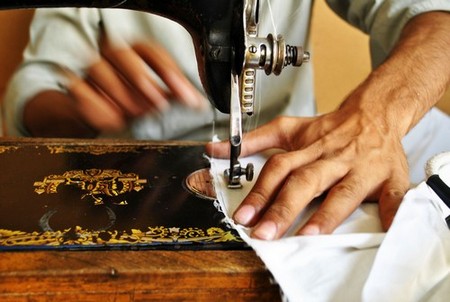
Most tailors in Pakistan use electric sewing machines as, this way, one hand is free to control the fabric.
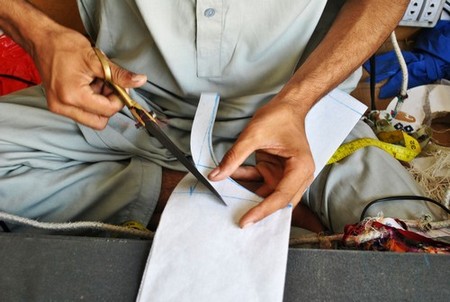
A tailor cuts this paper called buckram, a hardy and hardworking cotton underlining that provides a moldable foundation for showy fashion fabrics.
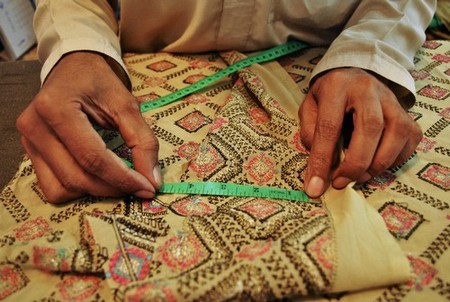
The senior master tailor takes measurements before cutting the fabric

Hangers are ready for suits. “We’re handling a double workload now because this year again Ramadan will be in the summer so we’re taking Eid orders as well”, said Khan, explaining that his tailors often work 10 to 12 hours a day.

Measurements pinned to a formal dress.

